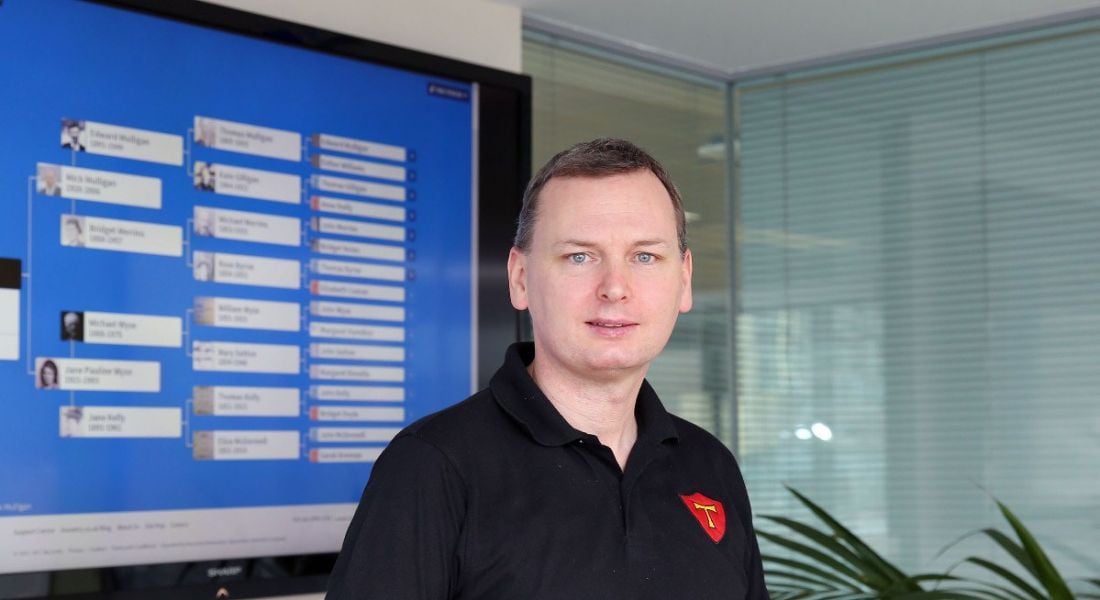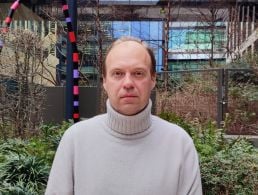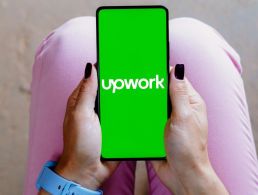Are you fascinated by the amount of untapped data in our genetics? Have you ever wondered about your own DNA and the stories it can tell?
Who do you think you are? Mike Mulligan is a DNA historian with Ancestry and he might be able to help you find out.
As an experienced genealogist, he advises on how to use DNA and genetics to find out people’s family history, making his day incredibly varied and interesting.
What is your role within Ancestry?
My job has a dual role as I act as a DNA historian, or genetic genealogist, educating and advising on how to use DNA as part of your family history.
I also work as a product manager with Ancestry. The two parts of the role are very complementary as I believe the most important part of being a product manager is to also be a user of your own product.
If there is such a thing, can you describe a typical day in the job?
On any given day, I look at the Ancestry users, I sit with the designers and developers and see if there are any pain points or ways to improve the experience. When I have a DNA case to work on, the tables are turned and I am the user.
On those days, I review DNA cousin match lists looking for connections. Then I cross check the DNA info with what I know of the paper trail, census, birth records, marriages etc. What you are looking for is to see if different types of evidence are telling the same story.
What types of project do you work on?
I work on many varied projects. In the past, we have worked on records projects such as displaying wills and probate documents. For a family historian, they are complex documents, but great sources of information.
My favourite was one gentleman who left his son-in-law 50 cent to buy a rope with which to hang himself. We also work on DNA projects to improve the connection between DNA and traditional family history.
The DNA cases will very much depend on the particular question that someone needs answered. There have been unknown parentage cases where someone has been adopted or perhaps doesn’t know who a given parent is.
In these cases, DNA is often the only lead. But more generally, I will get asked to help if someone has a particular family mystery or just needs help understanding their DNA results.
What skills do you use on a daily basis?
Communication. The most important part of what I do is communicating between groups of people with varied backgrounds and skill sets.
Even for an experienced genealogist, DNA can be challenging at first. So, walking them through their results and explaining what they are looking at is very important.
But on the flip side, when sitting with the development team, the user experience needs to be articulated in a very specific, forensic way so that we can improve the experience of using Ancestry.
What is the hardest part of your working day?
Genealogists are addicted to the paper chase. There is always one more record, one more DNA link, one more piece of the puzzle. Switching that off can be hard. I have found myself at home in the evening thinking of different record collections I could try in order to find a date or a name.
Do you have any productivity tips that help you through the working day?
I hate making lists, but some months ago, I was juggling a couple of different projects and I decided to start making a list each morning on a post-it of what I needed to get through that day. I’ve kept that up every morning with a new post-it. I still hate making lists but I grudgingly admit their usefulness.
When you first started this job, what were you most surprised to learn was important in the role?
That many things I took for granted were not self-evident. I started doing family history when I was very young, so I never paid attention to the fact that there is a certain jargon and shorthand in genealogy.
Family history is a growing hobby and I am regularly meeting people who are just starting out. For that reason, I constantly remind myself to avoid the shorthand because at the heart of family history is a very simple and universal idea. It is the telling of our family’s story.
How has this role changed as this sector has grown and evolved?
A couple of years ago, the terms genetic genealogist or DNA historian didn’t even exist. The use of DNA as part of your family history is a fairly recent innovation. However, now it is a mainstream part of genealogy.
In fact, one big discussion that is happening now is around the term genetic genealogist. It’s a term that is becoming anachronistic as DNA becomes just another tool in the family historian’s toolbox. A bit like a ‘knocker-up’ or a ‘slubber doffer’, which were actual jobs 100 years ago!
What do you enjoy most about the job?
When people make a connection with an ancestor or a living relative – that moment can be overwhelming emotionally. Seeing people who have been working on family mysteries for decades finally break through a brick wall is extremely powerful.
Seeing adoptees who have found long-lost family through DNA research. It is a deep emotional connection between people and an understanding of who they are. Being part of that process is a real privilege.
Looking for jobs in tech or science? Check out our Employer Profiles for information on companies hiring right now and sign up for our Career Republic e-zine for a weekly digest of sci-tech careers news and advice.




